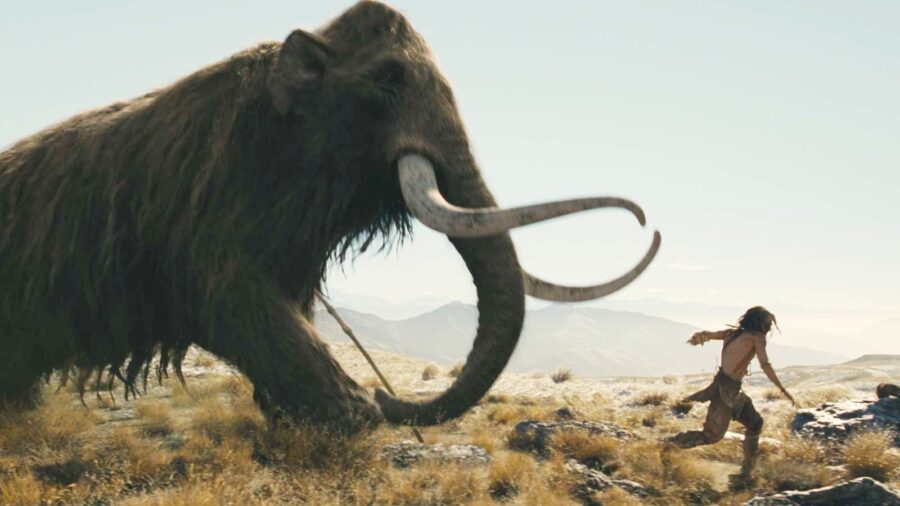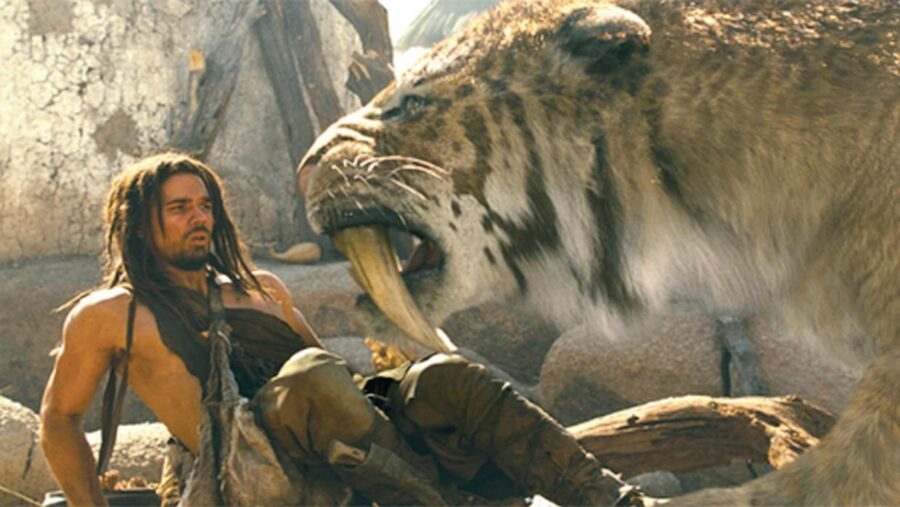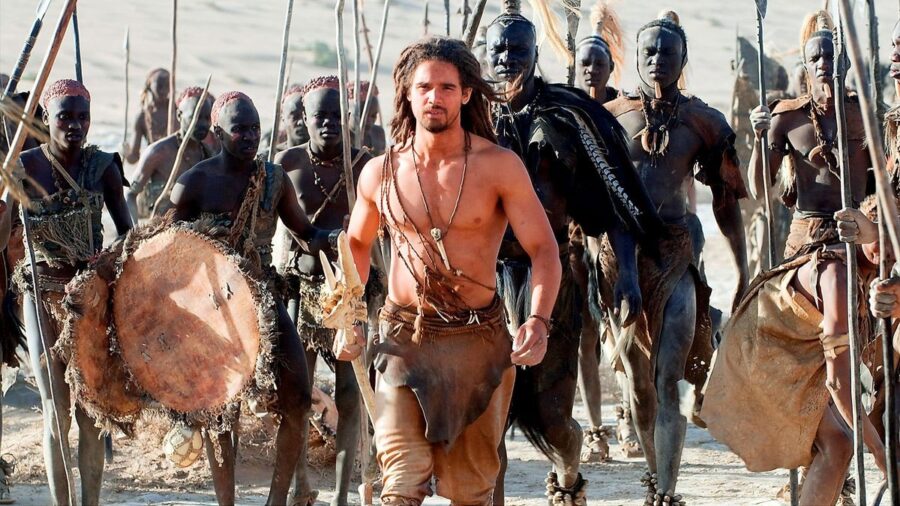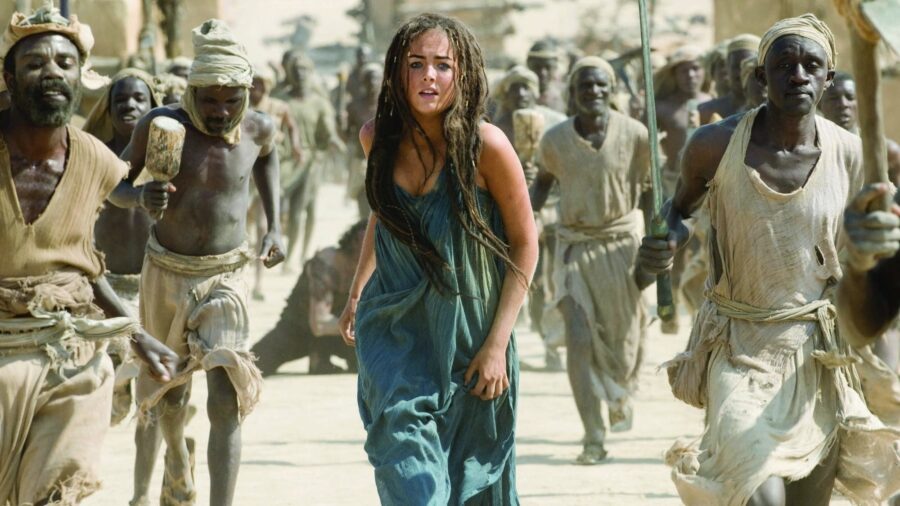A Horribly Inaccurate Prehistoric Movie Is Trending On Netflix
This very, very inaccurate movie is doing great on Netflix, but it really only gets good when it takes an unexpected turn.
This article is more than 2 years old

Some films are destined to be forgotten immediately. 10,000 BC, the 2008 action-adventure film from the king of modern disaster movies, Roland Emmerich, is one of them. Upon its release, it grossed nearly $270 million at the box office and utilized (then) state-of-the-art CGI to resurrect long-extinct beasts, but had little effect on popular culture. When it comes to blockbuster movies of 2008, it was hopelessly drowned out by the historic success of Christopher Nolan’s The Dark Knight, the Spielbergian debacle that was Indiana Jones and the Kingdom of the Crystal Skull, and even the goofiness of the ABBA jukebox musical film Mamma Mia! And yet somehow, 10,000 BC is currently in the top ten most-watched movies on Netflix. We have a guess to why and it’s three simple words: Saber. Toothed. Tiger.

The image of a prehistoric man facing off against a snarling saber-toothed tiger (or a Smilodon, as they are more scientifically known) was a key part of the marketing for 10,000 BC, but it is honestly not a huge part of the film. The film is far more concerned with another long-vanished animal, the woolly mammoth. The plot of 10,000 BC follows D’Leh (Steven Strait), a young member of a tribe of dead-locked, ambiguously racially mixed hunters who learns to become a leader to his people after his wife Evolet (Camilla Belle) is kidnapped in a raid by a group of horse-riding marauders.
From the very beginning of the film, Roland Emmerich loads up 10,000 BC with a bizarre amount of vague information dumps in a voiceover by legendary Egyptian actor Omar Sharif. We learn that Camilla Belle’s character is very special because she has vivid blue eyes; the movie has a strong tendency to racially profile the characters with the most traditionally Caucasian as heroes promised by destiny for great things, while darker-skinned actors are killed off. This includes the great Māori actor Cliff Curtis as Steven Strait’s mentor Māori (who dies defending Strait) and Jamaican-Chinese actress Mona Hammond as the mystical Old Mother (who literally sacrifices her life force to save Belle). It is not a terribly good look for the film, but Roland Emmerich has never been afraid to utilize cliched tropes in the service of a popcorn adventure and 10,000 BC is no exception.

Perhaps it is unfair to assume that Roland Emmerich’s 10,000 BC film would remotely be trying to be at all accurate to the year it uses as a title. Over the course of the film, we see “terror birds” that went extinct over forty million years ago attacking Steven Strait’s band of rescuers. We see woolly mammoths being used to build pyramids in what is implied to be ancient Egypt, which is not the first time that Roland Emmerich has assumed that North Africans needed some help with construction projects. We see Strait’s band apparently cross the entirety of the continent of Africa on foot over the period of what seems to be a few weeks while recruiting an army of various different vaguely tribal soldiers. Then we find out the main bad guy of the movie is the last living Atlantean.
That’s right, in the last act of the film, 10,000 BC fully pivots into Conan the Barbarian territory and frankly, the movie is the better for it. While Robert E. Howard had the sense to set his Conan stories in a fictional Hyborian Age, Roland Emmerich’s movie suffers under increasingly odd imagery until it turns into a sword and sorcery fantasy with a prophecy of a foretold hunter and actual magic.

Roland Emmerich has made his share of commercially successful, critically despised films that usually will involve all the cities of the Earth being drowned in enormous tidal waves (2012 and Moonfall come to mind), but 10,000 BC is generally held to be the worst of his entire career. It currently holds a 9% rating on Rotten Tomatoes, which can be fairly described as “nearly everybody in the world hates it.” It also did not propel any of its leads to further stardom, though none of them seem to have been particularly damaged by it either. Even though it made colossal amounts of money, 10,000 BC seemed to evaporate from memory overnight. At least, until Netflix started highlighting that cool, cool saber-toothed tiger.












